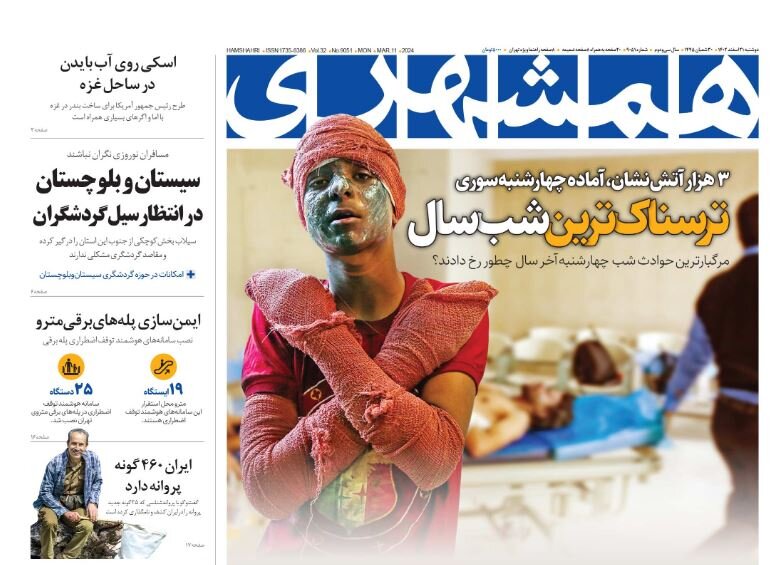The West is looking for an excuse to sanction Iran

TEHRAN - In a note, Hamshahri discussed the approach of the Western media toward Iran and said: The Western media is gradually creating an international consensus on various excuses against Iran.
They are using the result of the 12th Parliament elections and Iran's special international conditions in 2024 to incite new sanctions and international pressure against Iran. According to the Guardian, there are growing concerns among diplomats in the United States and Europe that Iran's unchecked nuclear program and the instability caused by the Gaza conflict will strengthen Iranian groups that support the development of nuclear weapons. The regional geopolitical context, including fears of the Gaza conflict turning into a wider war between Iran and Israel, is also a factor.
Iran: Tehran's emphasis on accelerating initiatives to end the genocide in Gaza
In an article, the Iran newspaper dealt with the conversation of Foreign Minister Amir Abdollahian with Qatari officials and talked about the latest developments in the West Asia region. Amir Abdollahian, in a phone call with Mohammed bin Abdulrahman Al Thani, the Prime Minister and Foreign Minister of Qatar, while reviewing the bilateral relations between Tehran and Doha and emphasizing the implementation of the agreements of the heads of the two countries, discussed with the Qatari official the latest views of the Islamic Republic on Gaza and the proposed initiatives to stop the genocide and siege. With the acceleration of the military attacks of the Zionist regime and the failure of the current processes to stop the war, the prospect of implementing the immediate ceasefire plan is not specified. Although the regional consultations of influential countries in the region such as the Islamic Republic and Qatar indicate a serious will to find a political solution to bring the parties involved in the war back to the negotiating table, the Zionist authorities' obstruction has so far prevented the progress of understandings.
Ham Mihan: The world system dominated by America is coming to an end
Ham Mihan wrote in an analysis: In recent years, multilateralism and joining multilateral institutions have been undertaken in the form of an effort to defeat the authority of the United States and end the domination of the U.S. dollar over financial and commercial exchanges. In the region, resistance is interpreted as the expulsion of America from the Middle East region. Even the definition of the new world order is the end of the U.S.-dominated world system. It seems that if Iran wants to have an effective role in the new world system, it should seriously revise its foreign policy doctrine based on the indicators expected from the future system and also formulate a clear definition of its interests and sphere of influence. It is possible that friendship and cooperation with the United States of America will not have a place in the next foreign policy doctrine of the Islamic Republic of Iran, but in this case, Tehran should not delay all its foreign actions to react to American approaches and try to defeat America. Tehran should be able to define an approach based on which Iran's success is prioritized and not the failure of other parties.
Shargh: Positive evolution of Iran's approach
In a commentary, Shargh discussed Iran's position in the region. It wrote: Iran is the only Persian-speaking country with a Shiite majority in the region, and many Iranian intellectuals use the title of "strategic loneliness" to describe the socio-cultural situation of this country. There are overlaps between Iranian identity and neighboring countries in terms of Shia religion and the Persian language, and it has brought both advantages and disadvantages for Iran in international relations. Iran's position as the largest and most influential Shia state - as well as the inheritor of a revolutionary ideology - has allowed Iran to exert influence on other Shia communities in the region, including in Iraq, Lebanon and Afghanistan, etc. The de-escalation between Iran, Saudi Arabia, and the UAE indicates a promising change in Iran's Middle East strategy. From the point of view of the Iranian authorities, these countries have already supported the Balkanization of Iran in order to disintegrate the country. The United Arab Emirates serves as a major outlet for Iran to acquire Western goods and hosts many Iranian exchange companies that play an important role in evading financial limitations imposed by the West. For this reason, de-escalation with Arab countries has been a positive development for Iran.
Leave a Comment